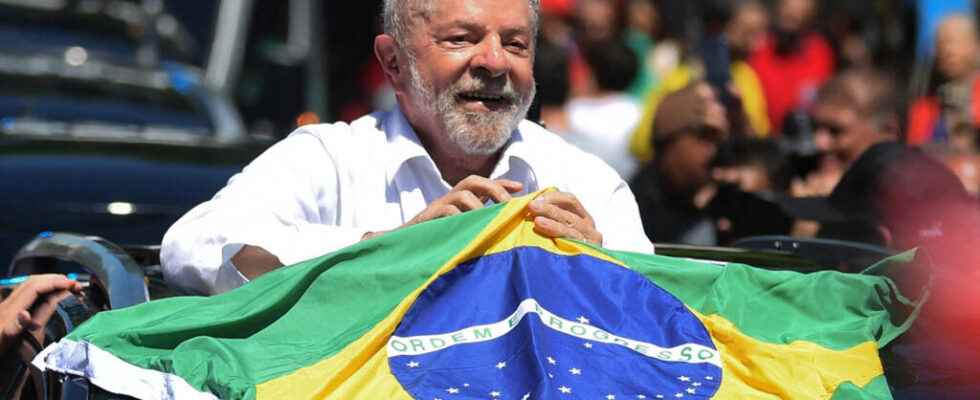Former President Luiz Inácio Lula da Silva was elected head of Brazil with 50.84%, according to official results from more than 99% of the vote on Sunday October 30, ahead of the outgoing head of state of extreme right Jair Bolsonaro (49.16%). The left-wing figure will begin his third term on January 1 after a tense campaign.
The Superior Electoral Court (TSE) declared Sunday evening the left-wing candidate Luiz Inacio Lula da Silva, elected president re the Republic, judging the gap being impossible to catch up after the counting of 98.95% of the votes. With around 49.16% of the vote, far-right candidate Jair Bolsonaro becomes the country’s first incumbent president to fail to be re-elected.
The gap between the two opponents is very short, in a country of 215 million inhabitants and nearly 156 million voters. They are however obliged to express themselves, the vote being obligatory. The margin is much narrower than predicted by the polls, which had already underestimated Jair Bolsonaro’s score before the first round.
The 77-year-old ex-steelmaker, who had been in prison for corruption (2018-2019) before seeing his convictions overturned by the courts, is making a spectacular return to the top of the state at the end of a deleterious campaign which has divided the country. He had already been at the head of the country for two terms, from 2003 to 2011.
Lula had achieved record popularity after his first two terms, but then fell from grace, going through prison, after corruption convictions finally overturned for formal defects. Immediately after the official announcement, Lula reacted in a tweet: Democracy “, with a photo of his left hand – of which he lost a finger during an accident at work – on a Brazilian flag.
Our special correspondent in São Paulo, Achim Lippoldtook the pulse of Lula voters shortly before the announcement of the results.
High tensions
The campaign was marked by many tensions and incidents, in particular the murder on Friday of a former elected representative of the Workers’ Party (PT) of Lula, near São Paulo. According to the police, everything indicated that it was an act of a bolsonarist “.
Lula allies said before the polls close that police had stopped buses carrying voters while the electoral authorities had prohibited such checks. Media reported that these operations took place mainly in the northeast of the country, a region favorable to Lula.
And this by mandate of the road police, whose chief called to vote for Jair Bolsonaro in a publication on social networks, before deleting it.
” What happened today is criminal. Nothing justifies that (the police) set up roadblocks on election day “, told the press Gleisi Hoffman, the president of the PT.
The Superior Electoral Tribunal (TSE), responsible for organizing the elections, declared that no voters had been prevented from voting and refused to extend the opening of polling stations.
Jair Bolsonaro, after voting in the morning at a military base in Rio de Janeiro, said ” expect victory, for the good of Brazil “.
The outgoing president has pledged to continue the ultra-conservative policy he implemented during a first term disrupted by the health crisis caused by the Covid-19 pandemic.
Lula, who voted in a school in São Paulo, intends to be more socially and environmentally responsible than his opponent and to improve the situation of the poorest Brazilians and the middle class.
More information to come.
